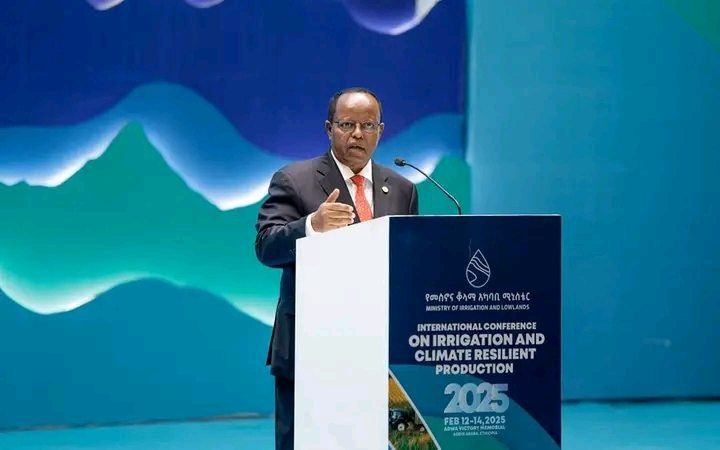Ethiopia’s Transition to Self-sufficient Wheat Producer Demonstrates Africa Can Feed Itself: President Taye - ENA English
Ethiopia’s Transition to Self-sufficient Wheat Producer Demonstrates Africa Can Feed Itself: President Taye

Addis Ababa, February 12, 2025 (ENA) --- President Taye Atske Selassie underscored that Ethiopia's historic transition from wheat importer to a self-sufficient producer sends a powerful message that Africa can feed itself.
A three-day international conference on irrigation and climate resilient production 2025 has kicked off in Addis Ababa today.
The international conference themed "Cultivating Resilience: Global Perspectives on Irrigation Development and Climate Adaptation", seeks to address challenges by providing a platform for global collaboration and knowledge exchange.
Opening the conference, President Taye said Ethiopia's Green Legacy Initiative is a clear testament of the continued commitment toward preserving and sustaining the environment which is one of the compelling success stories of climate conscious food production.
The planting of over 40 billion tree seedlings under the initiative is a tangible investment which enhanced the nation's forest coverage to 23.6 percent as it is also crucial to attaining food self-sufficiency through agro-forestry.
Regarding the historic success of the nation's wheat productivity, the president noted that in a very short period, Ethiopia has transitioned from wheat importer to a self-sufficient producer.
This achievement signifies Africa's untapped potential to achieve food sovereignty through strategic investment in irrigation, mechanization and comprehensive agriculture.
"It sends a clear and powerful message that Africa can indeed feed itself," President Taye underscored.
He also commended the significant contributions of the Bounty of Basket initiative and the irrigation projects.
Addressing the conference, Minister of Irrigation and Lowlands Abraham Belay stressed the need for innovative approach to realize the transformation of Africa's agriculture.
Stating that strengthening policy reforms is vital for climate smart agriculture, the minister also emphasized for empowerment of women and youth.
This conference has convened experts, policymakers, practitioners, and stakeholders from Africa and the rest of the world to share insights, discuss emerging trends and showcase successful interventions in irrigation development and climate adaptation.
The conference is particularly significant for Ethiopia as it provides an opportunity to learn from global best practices and apply these lessons to local context, the minister added.
By drawing on international experiences, Ethiopia can enhance its irrigation strategies, improve water use efficiency, and build resilience against the diverse effects of climate change, it was indicated.
According to the Ministry of Irrigation and Lowlands, the conference will also explore innovative financing mechanisms that prioritize inclusivity, ensuring that women, youth, and marginalized communities are actively involved in and benefit from irrigation development efforts.